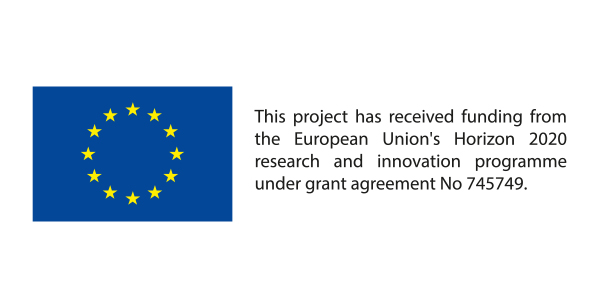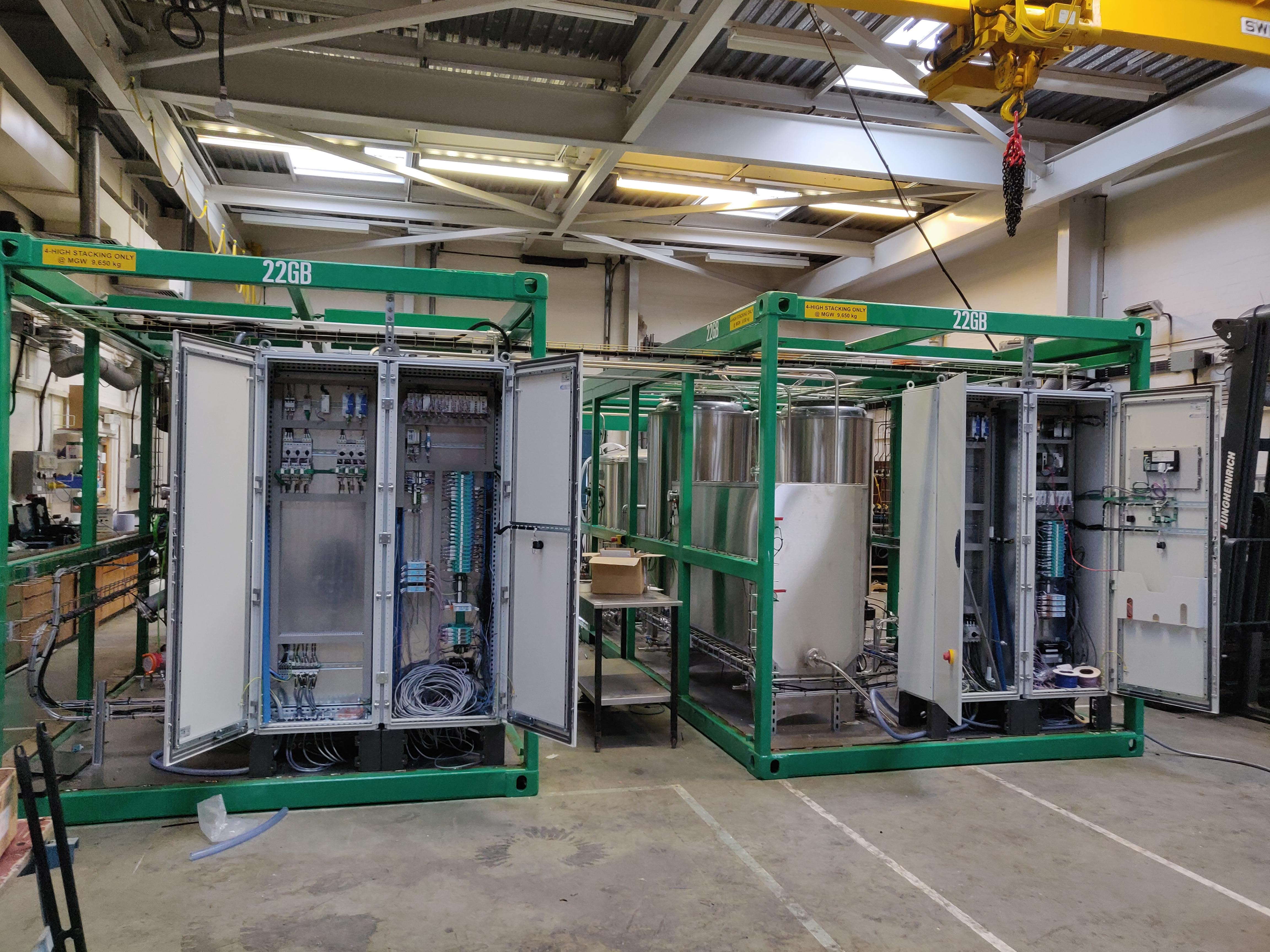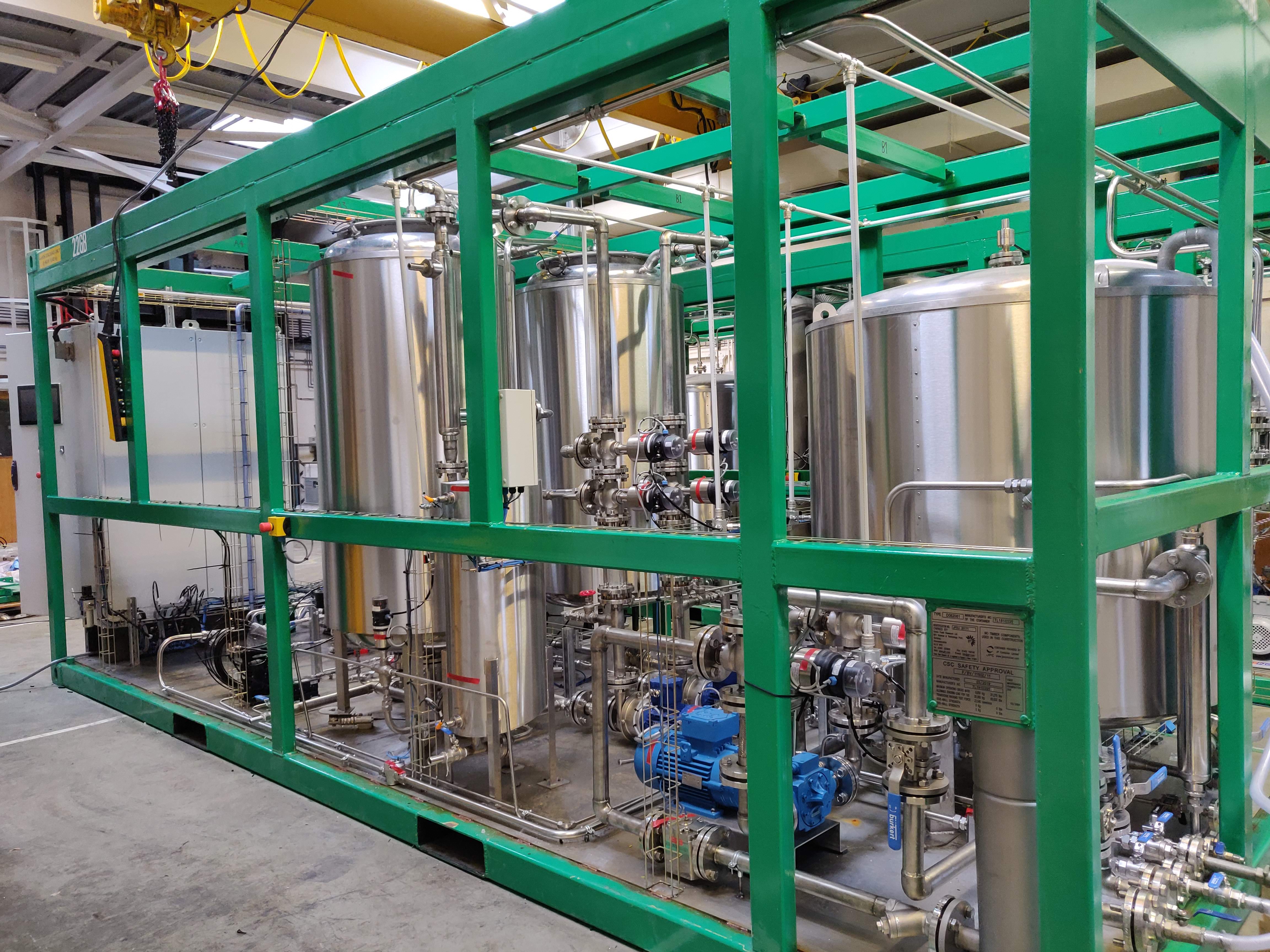Sustainable aviation fuels with Fraunhofer TCR technology
flexJET wins KETBIO Award as most innovative EU biotech project
Out of more than 300 EU-funded biotech projects, the flexJET project for the production of sustainable aircraft fuels was selected as the one with the best chances of commercialization. The prize was awarded by the industry experts of the European KETBIO Biotech Transfer Initiative. Within the framework of flexJET, 1200 tons of sustainable aviation fuel are produced from used cooking oils. The hydrogen required for the hydrogenation of the oils comes from biogenic residues. It is produced using the TCR® process developed by Fraunhofer.
Sustainable aviation fuels for the decarbonisation of air transport
Prof. Andreas Hornung, inventor of the TCR® technology and head of the Sulzbach-Rosenberg branch of Fraunhofer UMSICHT as well as chair of bioenergy in Birmingham, is coordinating the project in a leading role. He says: "The award from the KETBIO expert committees shows us how important sustainable aviation fuels (SAF) are for the industry. With the system technology in the flexJET project, we will demonstrate that SAF can be produced economically both on a large industrial scale and on a decentralized basis".
Goals of the flexJET project
The demonstration plant in flexJET will produce 1,200 tons of sustainable aviation fuel per year from vegetable food waste oil. Hydrogen will be produced from other dried biogenic residues using TCR (Thermo-Catalytic-Reforming) technology, which will be used to process the oils. In total, more than 4,000 tons of waste are removed from the environment.
Dr. Miloud Ouadi, research manager and project coordinator at flexJET at the University of Birmingham says: "Winning the KETBIO Award is a great honour and confirms us on our way to commercial plant engineering. Our overall goal is to significantly advance the decarbonization of the aviation sector".
Immediately after completion of the project, a first commercial plant is planned to produce 25,000 tons of sustainable aviation fuel per year.
Process and plant engineering
The flexJet process technology combines conventional transesterification technology with hydro-processing and fractionation for the upgrading of biodiesel with organic waste fats with Thermo-Catalytic Reforming (TCR®) technology for the production of green hydrogen. The hydrogen is separated by pressure swing adsorption (PSA). Waste vegetable oils (used cooking oil) are used as feedstock for the production of the fuels in accordance with the existing standards (HEFA route - ASTM D7566). The additional use of green hydrogen from the conversion of residual biomass and the use of renewable process energy enables a significant reduction of the remaining CO2 footprint.
The output of aviation fuel could be further increased by co-refining the oils and fats with the bio crude oil from the TCR process. If the results from the preliminary tests are promising, this route could become a candidate for a future ASTM approval procedure.
The flexJET project is funded by the European Union's Horizon 2020 research and innovation programme with approximately EUR 10 million. The project runs until 2022.
KETBIO Award
Within the framework of the KETBIO competition, more than 300 EU-funded biotech projects were examined for their commercialisation potential. Interviews were carried out for 79 projects and the projects were analysed in more detail, taking into account factors such as target markets, TRL, industry involvement, IP situation and more.
The evaluation of the best placed projects was complemented by an assessment by renowned industry experts and industry representatives from KETBIO's economic advisory board.
KETBIO is a European initiative funded by the EU in the Horizon2020 programme. It has set itself the task of promoting the transfer of biotechnologies into applications. KETBIO is coordinated by DECHEMA Society for Chemical Engineering and Biotechnology.

Last modified:



